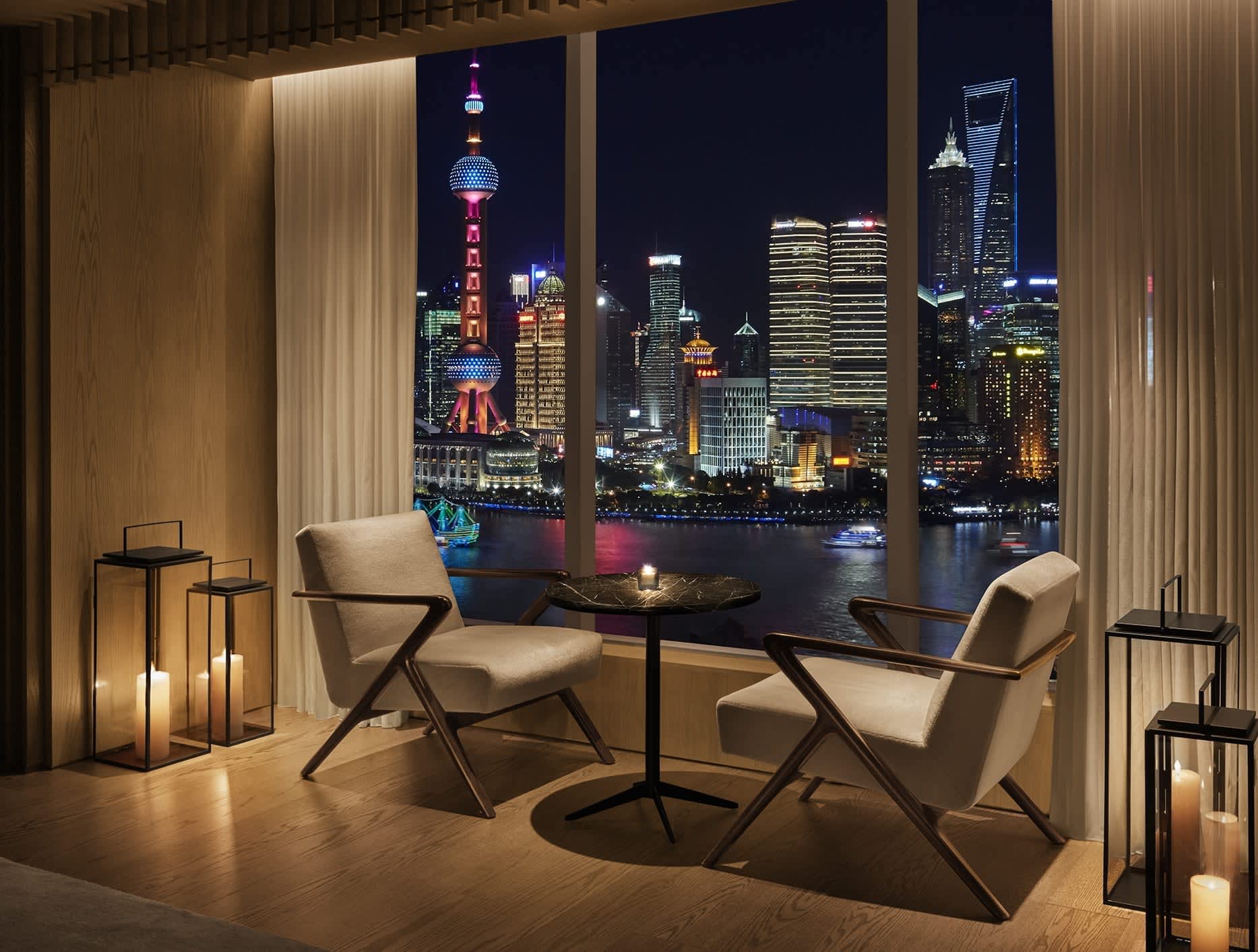The Chinese consumers’ expensive taste is driving growth of the luxury market and fueling a boom in luxury five-star hotels in cities across China.
The number of wealthy Chinese recently surpassed the number of wealthy Americans, according to Credit Suisse. The survey found 100 million Chinese in the world’s top 10% of richest people, while the United States has 99 million in the same bracket.
“The Chinese luxury traveler is the most booming segment of luxury in the world,” said Craig Smith, Marriott International’s group president for Asia-Pacific, who oversees more than 750 hotels in the region.
“The Chinese customers are very well educated. They’re much more now into personalized service,” said Matthias Terrettaz, general manager of the Bulgari Hotel in Shanghai.
Chinese consumers are expected to account for about two-thirds of the luxury market’s growth in the coming years, according to a McKinsey report and luxury hotels are hoping to reap the benefits, with the region’s major cities all growing their stock of five-star rooms. Beijing leads the way with about 40,000 five-star rooms in 2018, followed by Shanghai, Macau and Hong Kong, according to Knight Frank research.
And much of the growth is coming from China’s younger generation. “The average luxury traveler in China is 33 years old, compared to 56 years old in the U.S.,” Peggy Fang Roe, Marriott International’s chief sales and marketing officer for Asia-Pacific said.
Meanwhile, it’s not just China’s domestic market seeing a surge in Chinese travelers. In 2015, Chinese tourists took 117 million outbound trips and that’s expected to hit 160 million next year, according to McKinsey report.
CNBC recently visited five newly-opened 5-star hotels in Beijing, Shanghai and Hong Kong.
The Shanghai Edition
The Shanghai Edition
The Shanghai Edition
Inside the Shanghai Edition, the traditional hotel lobby is swapped out for an upscale bar and lounge, with an atmosphere meant to emulate a town square, as it’s known as a place to see and be seen.
The hotel is popular among 25- to 35-year-olds, primarily Chinese, and the demographic skews female.
With such a young demographic, technology is at the forefront as guests can use their smartphones to wireless access their room. Soon, they’ll likely be able to just show their face using facial recognition technology.
“The Chinese millennial is a bit more sophisticated,” Matthew Cooper, The Shanghai Edition’s general manager told CNBC. “These young millennials have already seen the world. Now they’re looking for an experience that the world doesn’t really know exists yet.”
Bulgari Hotel in Shanghai
Bulgari Hotel, Shanghai
Bulgari Hotel Shanghai
The Bulgari Hotel, an extension of the luxury Italian jewelry brand, opened its sixth property in Shanghai last year.
Adjacent to the hotel is a restaurant and ballroom, which was formerly the Shanghai Chamber of Commerce. From the tiles to the roof, it’s all been preserved to maintain its original feel. Today, the space is used for everything from fashion shows to corporate events and weddings.
There are 19 luxury suites here, with one signature suite, known as the Bulgari Suite, priced at $20,000 per night (plus tax).
CHAO, Beijing
CHAO, Beijing
Chao, Beijing
Chao is a newly-opened lifestyle brand geared toward millennials. Besides accommodation and restaurants, it also serves as a members-only club, which hosts regular events ranging from art exhibitions and movie screenings.
“We wanted to address the crowd that is millennial in their attitude,” William Latour, Chao’s managing director said. “Our clients tend to have a vision of their environment which is maybe, unscripted. It’s ‘I want breakfast, but I want the experience of breakfast, I want the emotion of breakfast.'”
The hotel reception is off to the side at the entrance, and the staff don sleek streetwear instead of stuffy luxury uniforms.
While the restaurants are open to the public, you’ll need to apply for a membership to enter the clubhouse. In order to apply for a membership, you’ll need to be nominated by two current members.
Chao is now looking to expand the brand beyond Beijing.
St. Regis Hong Kong
St. Regis Hong Kong
The St Regis Hong Kong
The entrance area of the newly opened The St. Regis Hong Kong provides an immediate sanctuary from the bustling sights and sounds of Hong Kong. Instead of going to a front desk to check in, guests are greeted by a butler who escorts them to their room.
“As soon as you come out of your car, we immediately put you at ease. We take you through the journey of the hotel and we 100% check you in your room and at that time we determine if you want full butler service, you want partial butler service or if you just want to be left alone,” Derek Flint, general manager at The St. Regis Hong Kong said.
The hotel has 129 rooms, along with its signature 250-square meter Presidential Suite which is opulent in every sense of the word.
Rosewood Hong Kong
Rosewood Hong Kong
Rosewood Hong Kong
Located on the harborfront of Hong Kong’s Victoria Dockside arts and design district, Rosewood Hong Kong’s aim is to create a hotel that feels like home.
“The notion here is of not creating hotels, but truly creating big family residences, or mansions or manors, and that’s been core to the brand,” Marc Brugger, Rosewood Hong Kong’s general manager said.
Its newly opened spa, Asaya, has offerings such as cognitive behavior therapy with a licensed practitioner, in addition to the usual body treatments.
There are 413 rooms, along with eight restaurants and lounges, and its massive executive lounge, The Manor Club, features panoramic views of Hong Kong island.
